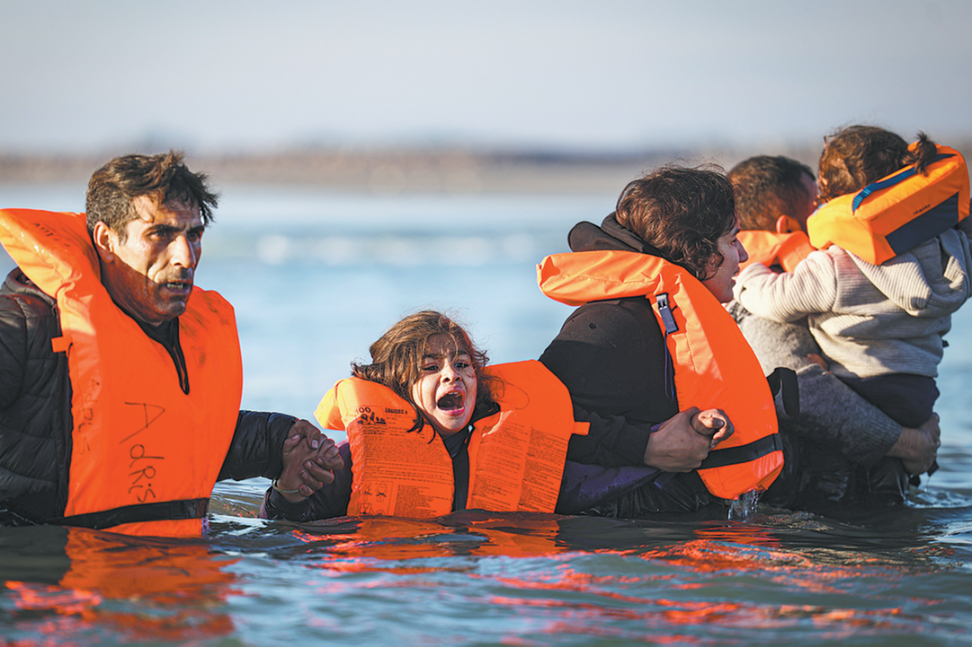Urgency of challenge permits no cold feet
By ALFRED ROMANN | chinawatch.cn | Updated: 2019-12-19 10:42

The deaths of at least five people in Thailand in the second week of December were caused by a mild cold front, the kind of cold front many people would barely notice.
One man, 38-year-old Prasarn Homthong, died in Bueng Kan province when temperatures fell to 9 C on the night of Dec 6.
Faced with the suddenly cold temperatures and living in a house still under construction that had no windows or doors, Homthong gave all his three blankets to his 8-year-old daughter. The girl woke up in the night to find her father curled up and blanket-less. She covered him with one of the blankets, but it was too late. When she tried to wake him in the morning, he was dead. According to the medical examiner, Homthong died because his body could not adjust to the sudden change in temperature.
The average body temperature is 37 degrees Celsius. Water feels cold at 16 C and very cold below 13 C. While 13 C would be considered sweater weather (or light jacket weather) for many, it can also lead to hypothermia-the uncontrolled loss of body heat-and kill people who do not actually own a sweater or an extra blanket.
This colder weather has spread to other parts of Asia. The mercury also dropped in Singapore during the first week of December, with the unseasonable chill surprising many. Myanmar also went through a cold spell.
For the past couple of years, temperatures in parts of Asia have fallen significantly in the winter months between December and February. The cold weather has been welcomed by tourists, able to enjoy the bustling streets and floating markets without sweating. Locals and farmers have been harder hit.
This colder weather is indicative of a larger challenge that lays ahead for much of the world, and huge swathes of Asia in particular.
As people were dying in Thailand, officials from around the world met in Madrid, Spain, for climate talks to debate the future of the 2015 Paris climate agreement.
The two weeks of talks ended on Sunday with a formal recognition of the need to bridge the gap between greenhouse gas targets set in Paris and scientific advice that says much deeper cuts are needed.
Greater efforts, are needed to address the challenges posed by climate change, the effects of which the Asia-Pacific is particularly vulnerable to.
Germanwatch, an environmental think tank that produces a climate risk index, says that extreme events, including cold waves, led to 495,000 deaths around the world between 1999 and 2018 and global losses adding up to $3.54 trillion.
The 2019 version of the index listed Vietnam and Thailand among the top 10 countries most affected by climate risk in 2017. The 2020 version, released in early December, also included Japan and Philippines among the countries most affected.
In Southeast Asia specifically, climate change could shave 11 percent off the region's GDP by the end of this century through its impact on health, agriculture, fishing, tourism and labor productivity, according to the Asian Development Bank.
Temperatures don't have to change much for crops or people to die and economies to be badly hurt.
The goal of the Paris Agreement is to limit the rise in average global temperatures to 1.5 C to 2 C. Seemingly small, this difference could have a huge global impact as it would mean the melting of the polar ice caps, massive floods and more extreme weather patterns. The deaths in Thailand were caused by a cold front that led to drops of just a few degrees, nothing that most people would notice.
In the last few months of 2018 and early 2019, Thailand experiences its chilliest winter in memory, with temperatures between October and February dipping into the single digits. This year, the cold is back, and so is the call to take this kind of climate risk seriously.
While the risks are not as dramatic as other extreme weather events, they are significant and should be taken into account by policymakers, and people themselves.
When he went to sleep on that fateful night in early December, Homthong was not for a second thinking about dying. He was likely thinking about making sure his young daughter did not catch a cold, and that she could sleep comfortably.
He was probably sleeping when the hypothermia set in.
He probably did not know that such a fate was even a possibility. He never woke up. It was a preventable death.
The author is managing director of Bahati, a Hong Kong-based editorial services consultancy.
The author contributed this article to China Watch exclusively. The views expressed do not necessarily reflect those of China Watch.
All rights reserved. Copying or sharing of any content for other than personal use is prohibited without prior written permission.
























